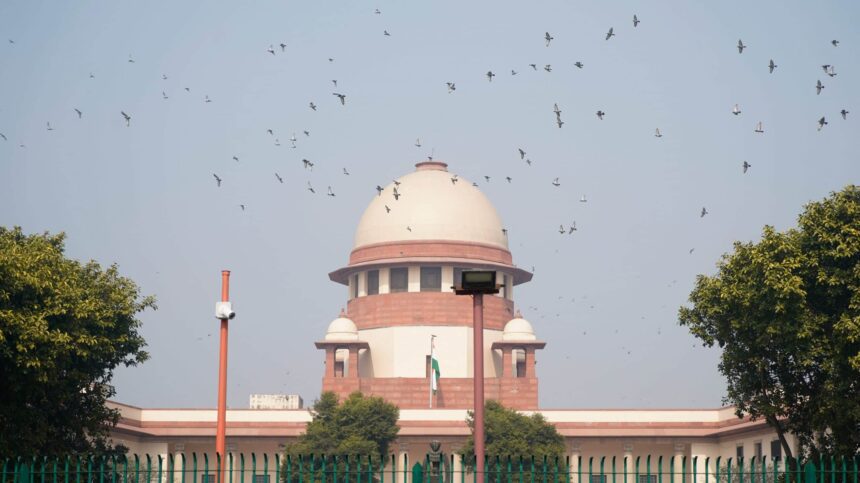In a significant ruling on November 6, the Supreme Court of India determined that the obligation to provide written reasons for an arrest applies universally to all offenses under the Indian Penal Code (IPC) and the new Bharatiya Nagarik Suraksha Sanhita (BNSS), and not just to cases under special laws such as the Prevention of Money Laundering Act (PMLA) or the Unlawful Activities (Prevention) Act (UAPA).
The bench, comprising Chief Justice BR Gavai and Justice Augustine George Masih, asserted that the failure to furnish the grounds of arrest in writing to an arrestee, in a language they comprehend, would render both the arrest and subsequent remand illegal, as reported by Live Law.
The court emphasized that “the requirement of informing the arrested person of the grounds of arrest, in light of Article 22(1) of the Constitution of India, is not merely a formality but a mandatory binding constitutional safeguard included in Part III of the Constitution under the head of Fundamental Rights.” Therefore, failing to inform a person of the reasons for their arrest promptly would violate their fundamental rights and infringe upon their right to life and personal liberty under Article 21, thereby making the arrest illegal.
The court laid out specific mandates:
- The constitutional requirement to inform the arrestee of the grounds for arrest is mandatory for all offenses under all statutes, including those under the IPC 1860 (now BNSS 2023).
- The reasons for arrest must be conveyed in writing to the arrestee in a language they understand.
- If the arresting officer cannot communicate the grounds in writing immediately, they may do so orally, but must provide written documentation within a reasonable time frame—at least two hours before presenting the arrestee for remand proceedings.
- Non-compliance with these provisions would render the arrest and subsequent remand illegal, allowing the individual to be released.
This case originated from the arrest of a petitioner involved in a high-profile hit-and-run incident in Mumbai. Although the Bombay High Court acknowledged procedural shortcomings in the arrest, it declined to label it illegal, citing the gravity of the offense and the petitioner’s alleged attempts to evade arrest.
Challenging the Bombay High Court’s decision, the petitioner contended that his arrest was unlawful due to the lack of written grounds for it. The central issue before the Supreme Court was whether the right to be informed of arrest reasons mandates written communication in every scenario and the legal repercussions of failing to meet this obligation.
In declaring the petitioner’s arrest unlawful, Justice Masih reiterated that informing an arrested individual of the reasons for their arrest is a fundamental right protected under Article 22(1), which is integral to the broader guarantee of personal liberty embodied in Article 21.
“This is not a mere formality,” the court stated.
Moreover, the court clarified that failing to provide written grounds for arrest immediately or prior to the arrest would not invalidate it, provided the grounds are subsequently communicated in writing within a reasonable timeframe and at least two hours before the arrestee’s production before a magistrate for remand proceedings.
The Supreme Court directed that copies of its judgment be disseminated to all High Courts and State Governments for prompt implementation, as reported by Live Law.
Tags: “This is not a mere formality”: Supreme Court declares written grounds of arrest a fundamental right Extract 5 SEO-friendly keywords as tags. Output only keywords, comma separated.
Hashtags: #mere #formality #Supreme #Court #declares #written #grounds #arrest #fundamental










